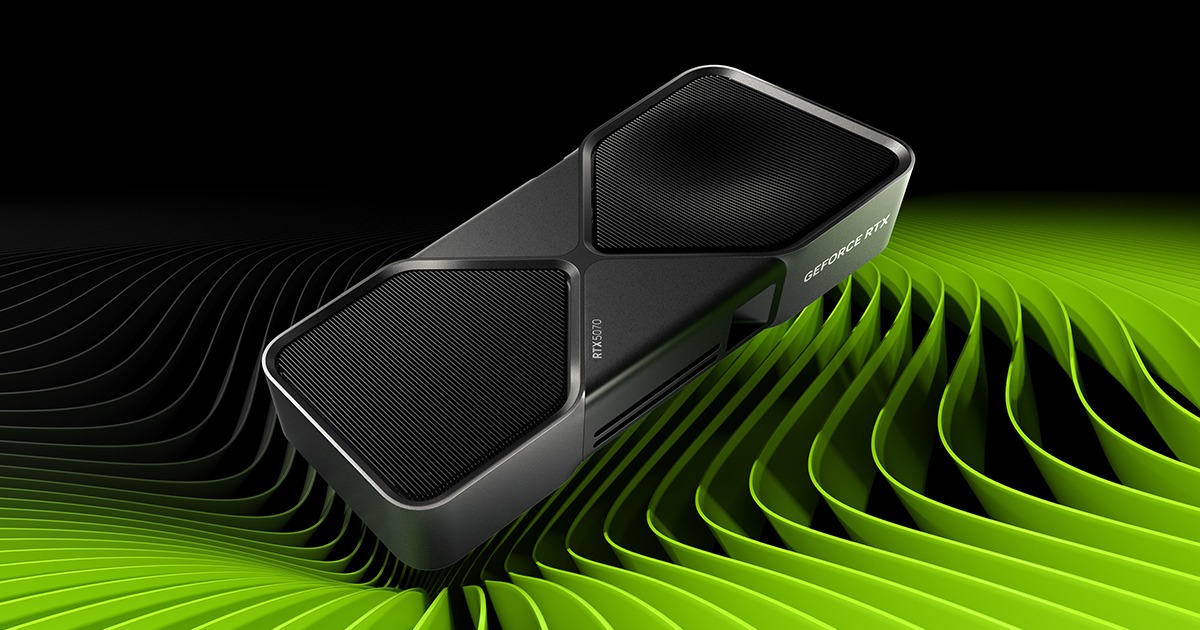Latest Nvidia drivers boost synthetics by 6-8% on RTX 50 GPUs — Users still report stability woes
Nvidia giveth speed, but taketh stability (though the previous take was much larger).

The latest addition to the Nvidia R570 branch of GPU drivers, 576.02, has resolved many stability problems troubling RTX GPUs for the past three months, including crashes and black screens.
Adding to the mix is increased synthetic performance, as reported by ComputerBase, whose data suggests an up to 8% performance bump in 3DMark Steel Nomad. Alas, it's not all sunshine and rainbows, as it appears a new set of stability woes has surfaced with these new drivers, as indicated by user reports.
It is important to understand that improved synthetic performance might not directly reflect real-world tests, such as games and content creation. Either way, with the onset of enablement drivers (R570) for the RTX 50 series in February, a wide range of stability problems affected nearly all RTX GPUs. I personally had to roll back to an older 566.xx release to get RTX HDR working properly. Fast forward to March, and back-to-back hotfixes ironed out most of these quirks for Blackwell.
RTX 40 and RTX 30 GPUs, still plagued by crashes linked with G-Sync and Frame Generation, had to hold out until the latest 576.02 release that is said to fix most of these problems. ComputerBase did some testing and revealed that these drivers also deliver better synthetic performance on RTX 50 GPUs. This is further backed by several user reports at r/Nvidia, though the numbers could vary.
We're looking at uplifts ranging between 6%-8%, depending on the GPU in 3DMark's Steel Nomad benchmark. The most notable performance shifts can be observed with the RTX 5070, RTX 5070 Ti and RTX 5080, while the RTX 5090 remains largely unchanged.

We won't say no to free performance, but user reports still indicate lingering game crashes, black screen issues, stuttering, and other anomalies across the RTX GPU stack. Some of the mentioned game titles include Monster Hunter Wilds, FFVII Rebirth, and Black Myth Wukong, just to name a few. That's to say, there have been mentions of increased gaming performance with several games, so it's hard to draw a decisive conclusion.
The general consensus is that you should update to the latest drivers. In case you face any stability problems, try downgrading to the 572.xx release or 566.xx, but this comes with the trade-off of losing access to certain features.
Stay On the Cutting Edge: Get the Tom's Hardware Newsletter
Get Tom's Hardware's best news and in-depth reviews, straight to your inbox.

Hassam Nasir is a die-hard hardware enthusiast with years of experience as a tech editor and writer, focusing on detailed CPU comparisons and general hardware news. When he’s not working, you’ll find him bending tubes for his ever-evolving custom water-loop gaming rig or benchmarking the latest CPUs and GPUs just for fun.
-
King_V ReplyAdding to the mix is increased synthetic performance... Alas, it's not all sunshine and rainbows, as it appears a new set of stability woes has surfaced with these new drivers, as indicated by user reports.
Increased performance in NON-real-world tests, at the cost of new stability problems? Where do I sign up? /s (if it isn't obvious)
Seriously, what's going on over there at Nvidia? -
Thunder64 Wait I thought everyone always said AMD had the crap drivers? Oh well at least now I can play 3DMark faster!Reply -
abufrejoval Reply
With me, the symptoms were very clear: All "Blackwell-ready" drivers cause massive issues with anything older than Blackwell, while I actually didn't have a lot of trouble with those newer drivers on the single Blackwell generation card I bought.King_V said:Increased performance in NON-real-world tests, at the cost of new stability problems? Where do I sign up? /s (if it isn't obvious)
Seriously, what's going on over there at Nvidia?
My main mistake was to roll out the newest drives across all machines, which cover quite a few generations right back to one GTX 980ti still used by an in-law.
I'd say there has been a major amount of refactoring in the driver code and any backward compatibility testing which involved manual actions (e.g. testing with various monitors, resolutions, KVM etc.) that can't be automated, was at best done rudimentary and with a focus on the latest hardware.
Apart from the huge variety of GPU ASICs Nvidia is still supporting, there has been an major multiplication of features and interface capabilites, from what display ports support in protocols and bandwidths to PCIe v5.
You can't just hire GPU driver programmers off the street for a few weeks to prepare for a launch, while you also can't start that early writing code when you're still far away from working silicon (in sufficient numbers).
I'd just say that the complexity of the driver code is almost better at matching Moore's curves than the chips they drive and money alone isn't enough to fix that.
Once I knew I only had to go back to the old drivers for the older hardware, that was quite ok with me. Pretty sure they'll fix it eventually.
It's only the weeks that I spent thinking that something was wrong with my KVMs or that this was due to OS migration issues which still irk me. That's why on the job, we always test ourselves and always partition the deployment of new versions. -
Pemalite The irony is... AMD was always tarnished with bad drivers.Reply
Should be interesting to see what kind of impact this has on AMD's marketshare in the short term, but I doubt not much. -
Ryrynz ReplyPemalite said:The irony is... AMD was always tarnished with bad drivers.
Should be interesting to see what kind of impact this has on AMD's marketshare in the short term, but I doubt not much.
A lot of bad press recently for Nvidia, AMD are doing well, the GRE will further cement inroads. -
Thunder64 ReplyPemalite said:The irony is... AMD was always tarnished with bad drivers.
Should be interesting to see what kind of impact this has on AMD's marketshare in the short term, but I doubt not much.
The thing is AMD hasn't had bad drivers in a long time. It was true at one point but just got repeated over and over as if it was still true.